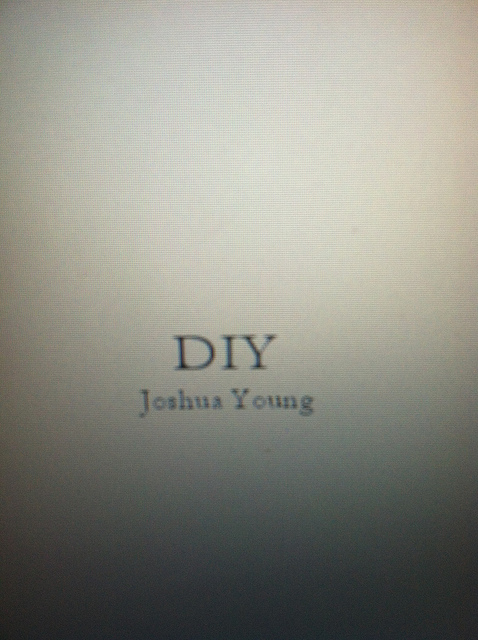
Thesis. Projects. Yeah.
[flickr id=”8165812005″ thumbnail=”medium_640″ overlay=”true” size=”original” group=”” align=”none”]
OK. It’s totally thesis time. Us second-year students in the Creative Writing – Poetry MFA program just got our thesis adviser assignments. I’m luckily getting to work with Tony Trigilio, who is not only a great reader of my work (and knows about hardcore punk—he was in college during that time) but also the reason I was able to come here. Plus, he’s just an awesome guy and a wonderful poet. His book Historic Diary has been an important book to have for this kind of project.
So, I’ve written about my thesis a lot (I feel like I’ve talked about it a lot, too), but right now, I feel like we are all talking about our thesis projects (and our cohorts projects, too). Everyone’s project seems to be approaching poetry differently—I’m thankful for this! It’s been interesting approaching projects and talking about their different modes, intentions, possibilities. I think that a good poet/student/teacher is someone who is able to approach a poem or a book and look at it objectively. And by objectively, I mean that they can look at the poem or book on its own terms. Instead of thinking, “What would I do if I wrote this?”, someone would say, “What does this poem want to do? How is this poem operating? How does this poem fit within the book? What is it doing?” This is important for workshops, not only in poetry but also in fiction and nonfiction.
Poets and Writers: It doesn’t matter what YOU think YOU WOULD DO to a piece; it’s about what the piece needs. I’ll say that again: IT’S ABOUT WHAT THE PIECE NEEDS. You have to be able to leave your baggage, ideas, and prejudices at the door of the piece, step in, and understand it before you go around talking about what it needs. So, what I’m saying is that this is good practice for those of us who want to teach creative writing.
Workshops that deal in projects or books really make this transparent. It’s harder to see when you’re working with individual pieces (poems, stories, essays), because workshops are naturally designed to “find problems” (which is a whole other post). I love talking about projects or about what could be a project. That’s how I think—in projects. In grad school, it’s important to think about individual pieces in terms of projects (e.g. “How does this poem speak to other poems, to the whole?”). After all, that’s what we’re building for: A THESIS. I was taught early on to think in terms of projects or book-length obsessions, and I think this is helping me think about my own work right now, in addition to looking at other poets’ projects.
[flickr id=”8165849695″ thumbnail=”medium” overlay=”true” size=”original” group=”” align=”none”]
I’m hoping to highlight some poets and their projects as we ramp up into the next semester. Just know that people are hard at work, and I’m really excited about them: Jacob and A History of Self-Immolation, Sarah and her Stairwell poems, Meg and her K poems, Jordan and his “Bro” poems, Patrick’s -philia, Tara’s Dying in Public, Andrew and his lyric and use of space, Kate and her characters through long couplets, Justin and his play (and poems), Smarie and her multi-modality, and everyone else who’s work I haven’t seen in a long time (Eugene, Brian, Davee, Abby).
Keep your eyes peeled. Good stuff is coming your way!
